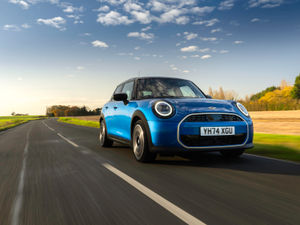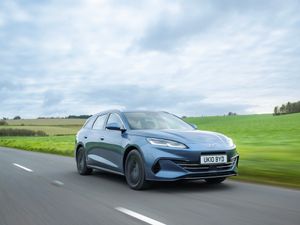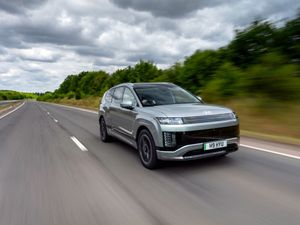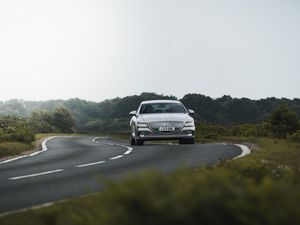Name of the game is comfort and reliability
Toyota has had an attack of common sense and handed over development of the facelifted Avensis almost entirely to its European arm. And, surprise, surprise, there are big improvements in key areas.
As well as the new family face, the Avensis has new diesel engines sourced from BMW, redesigned front seats for greater long-distance cruising comfort and an improved spread of equipment that includes a package of active safety systems.
The new front end pushes round front foglights right to the edge of the bumper, emphasising premium-esque girth. It's a pity, then, that the car looks rather under-wheeled on all but the largest 18-inch options. This is no super-saloon lookalike.
Toyota is targeting business drivers and the fleet managers who supply them, with lower emissions and more comfort – two image-boosting factors for high-mileage types. Toyota is still known for its (almost) peerless reliability, too, regularly swapping top spot in the satisfaction charts with its Japanese rivals at Honda.
Space
There are no worries in terms of boot space in either the saloon or Touring Sport estate; both have more than 500 litres to play with. There's only one cupholder between the front seats, but there is dedicated space in each front door pocket and a slightly awkwardly placed cup slot in the large centre storage bin.
The estate's broad boot floor desperately needs luggage nets or dividers to stop things rolling around – a common problem in estate cars – but beneath the boot floor there are several shallow trays for small oddments that are best kept out of sight.
Rear passengers will love the acres of legroom afforded by the space beneath the front seats. The rear seats are flat and with short squabs, but the overall space is impressive.
Here is where the biggest improvements have come. The Avensis was, of old, a slow-turning, wobbly thing, but with the addition of chassis spot welds, a new power steering calibration and accomplished BMW diesel engines it is much more direct, positive and – whisper it – almost enjoyable along a twisty road. There's a sense of directness and balance in the controls that wasn't there before.
The 1.6-litre engine is the most frugal on paper but needs working (very) hard in the mountains. Sit on the motorway, though, and its uncommonly tall gearing will see a return of around 1,800rpm at 70mph – low enough for impressive cruising economy.
Toyota's Touch 2 media and satnav interface is not perhaps the most attractive in its graphics, but the navigation fires up and responds to route changes faster than any other unit we've tested, never leaving you hanging at a crucial junction.
Arguably it's the seats that are the highlight. New shaping spreads the body's pressure better, reducing fatigue and supporting you more effectively. In several two-hour stints we never felt the need to shift position or get out for a leg stretch.
Budget well over £20,000 for a mid-spec diesel. It's certainly not cheap and faces stiff competition from the likes of the Hyundai i40, but it feels mechanically well-sorted and Toyota's reliability record goes in its favour here. A five-year, 100,000-mile warranty boosts customer value.
Toyota says around 87 per cent of Avensis customers will buy them as company cars, and with two 'Business Edition' trim grades, the firm couldn't be more obvious about their target audience. That said, the big boot at the back and the promise of trouble-free motoring for half a decade should make the Avensis appealing to parents, too.
This car summed up in a single word: Incognito
If this car was a sofa it might not be a designer brand and it might not 'wow' the neighbours when they step into your living room, but it would do the job so well you'd never want to change it





